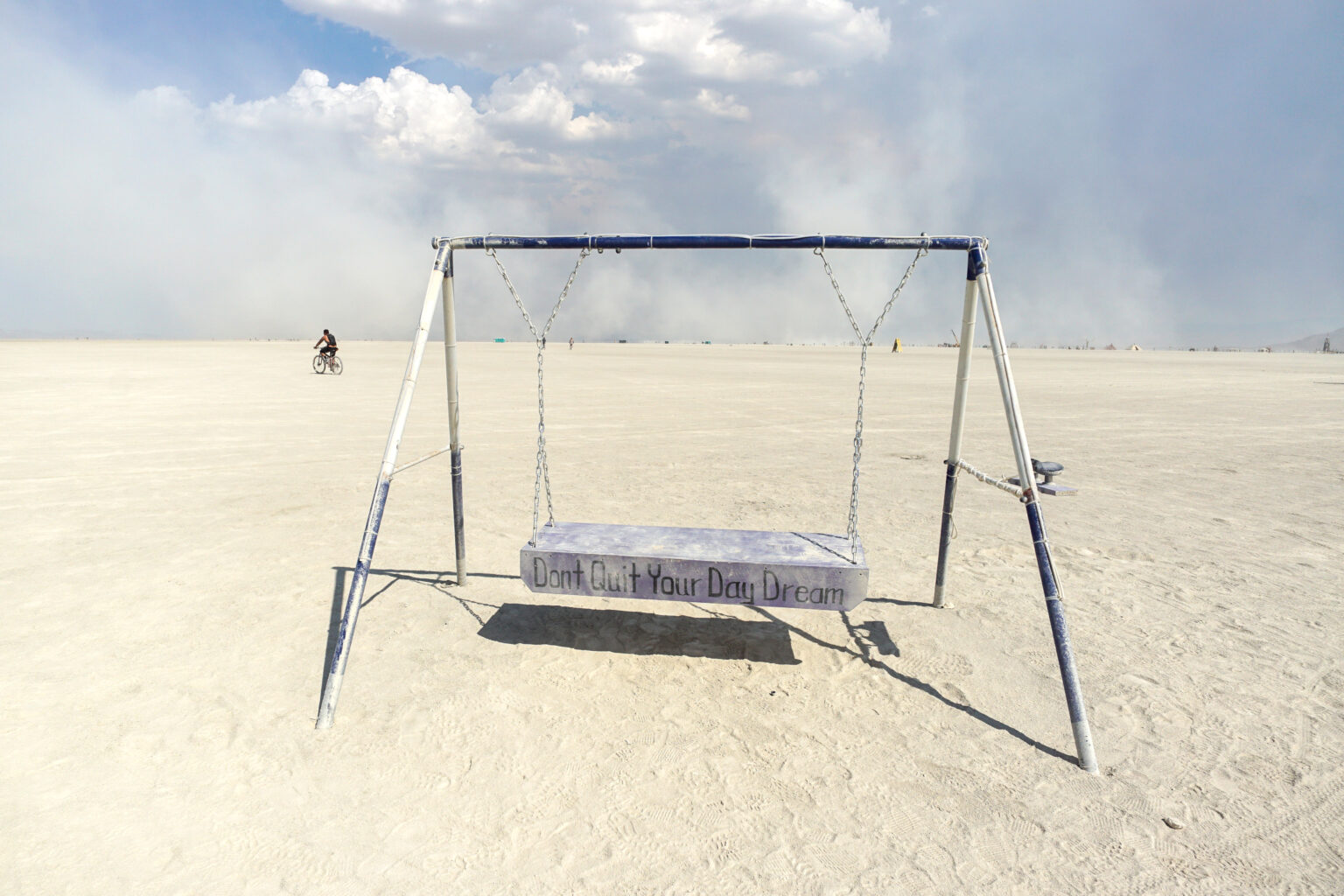Black Rock City, NV. For the first time in over a decade, tickets for Burning Man are still for sale, five days into the 9-day event.
The arts and culture event typically sells out months in advance, with tickets being difficult to come by. However, this year, organizers are selling last-minute tickets and vehicle passes to guests who did not pre-register, which is usually required.
In a telling sign, a 2018 Reddit discussion thread shows even premium tickets were already sold out by late May — almost four full months in advance. Premium tickets went for $1200 that year.
Lagging demand may be a product of two years of harsh weather conditions in Black Rock City. In 2021, extreme 100+ degree heat overwhelmed attendees. Heavy rains triggered hazardous flooding in 2023, forcing road closures and stranding festival-goers for days.
With tickets still available at $575 per person, Burning Man offers an “OMG Ticket Sale.” Ticket resale sites have listings for roughly half price on sites like StubHub.
The turn of events suggests economic factors may also be at play, as inflation eats away at discretionary income even among higher earners who frequent the event.
Marian Goodell, CEO of The Burning Man Project, confirmed they are simply easing restrictions to boost attendance up to the 80,000 capacity level. However, Black Rock City Census data indicates the group reduced ticket inventory by 10,000 between 2022 and 2023 before the weak sales this summer.
“When the demand is lower, we simply turn the faucet back on,” Goodell told reporters. She said the sale “creates an opportunity for this to ‘be the year’ more people experience the creativity and culture of Black Rock City.”
The organization’s spokesperson, Dominique Debucquoy-Dodley, added that it reflects a trend toward more last-minute ticket buying and “continuing to sell tickets until the maximum population count is reached.”
Though music events like Coachella and Lollapalooza saw slower sales, Burning Man faces a growing perception as a costly exclusive getaway for tech elites. Recent attendance surveys show increasing shares of six-figure earning participants, while lower income groups have dropped sharply.
Even those in higher income brackets may feel squeezed by rising inflation and economic anxiety. According to a June Federal Reserve survey, one-third of Americans earning over $150,000 are worried about getting by over the next six months.
Related: Americans Have $1.1 Trillion In Credit Card Debt
Small business owners dependent on Burning Man attendees have noticed lighter preparations for this year’s event. David Carr runs a San Francisco apparel shop called Kimono Dave that sees 25–40% of annual revenue come from sales the week before Burning Man.
“It’s taken a lot longer for people to start shopping than we are used to seeing,” Carr noted. Still, Carr had a near-record sales day recently as some customers bought coats and cold weather gear.
Carr, a 14-year Burning Man veteran, believes the past weather issues combined with inflation has “weeded out a lot of the fair weather ‘Burners.’” Regardless, he says diehards like himself wouldn’t miss the seminal counter-culture event.
The Burning Man organization remains optimistic that offering easy last-minute access will still draw the traditional crowds and buzz. But if the playa dust ends up less trampled than usual this year, it may force an inflection point in how the iconic festival recalibrates for the post-pandemic reality.


